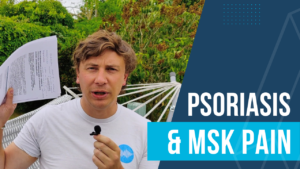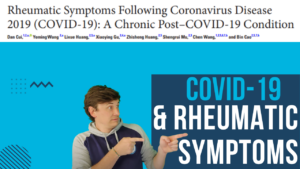Welcome back to the blog! Psoriatic Arthritis (Big Sigh). This is not easy, today I had a paper brought to my attention by Martin Thomas on Twitter which is open access LINK and is an interesting read for certain. It speaks to a lot of the challenges we face when trying to pick out Psoriatic Arthritis conditions in the sea of MSK presentations. I have tried to create some learning pointers in this blog.
Please consider heading to the shop to find more resources and supporting me to continue this hairbrained project! Or you can Buy A Coffee
You can also listen to all of my blogs as podcasts subscribe to your preferred channel HERE You can also find my podcast on Apple & Spotify & Google
As usual feedback is greatly appreciated and any further reading for me please send it my way!
PLEASE REMEMBER – THIS BLOG IS NOT A REPLACEMENT FOR CLINICAL REASONING, IF YOU ARE UNSURE GET ADVICE
Psoriatic Arthritis is very often associated with Psoriasis (approx 75% ish of the time) at onset. Great! So we just wait for people with Psoriasis to enter our clinic and boom, off we send them to rheumatology. No. Fail. Approximately 2% of the population has Psoriasis and of those between 6-48% will develop an associated arthritis. Coupled with this, there are various phenotypes that are starting to be explored in the literature these include but are not limited to – peripheral spondyloarthritis, axial spondyloarthritis, peripheral synovitis, a combination of two or all three.
This paper goes further into the difficulties, early Psoriatic Arthritis likely presents with joint arthralgia and fatigue which are very common, none specific symptoms. Compare this with AxSpA or Rheumatoid Arthritis that often have associated joint stiffness or swelling then it becomes easy to see how we might struggle with these. The whole papers premise is that Dermatologists are struggling and it advises the assistance of a Rheumatologist. It leaves me thinking, us MSK Therapists are not skin, nor inflammatory arthritis experts!
One final compounding challenge is a lack of overt biomarkers for Psoriatic Arthritis, HLA-B27 is sometimes related but usually when the symptoms are axial and Anti-ccp is of no use at all.
Lets for a minute agree this is a challenge, what shall we do about it in the MSK world, below I have listed some things I want you to consider, it might be you look into it further (I have linked to further info I have made where appropriate) or it might be that next time someone attends your clinic you go seek a colleague to bounce ideas off.
- Have a high index of suspicion in those with Psoriasis. Dig deep to inflammatory symptoms, history and family histories.
- Check their nails BLOG
- Does the chronicity of symptoms fit with the proposed differential diagnosis, chronic tendon issues or issues at multiple sites might be the clue its an underlying inflammatory pathology
- In back pain with concommitant psoriasis, make sure you ask about history of insertional tendon issues
- Don’t perceive negative inflammatory markers as ruling out Psoriatic Arthritis as a cause for symptoms
- Consider diagnostic ultrasound to look at insertional sites
- Use the Spade Tool or SCREENDEM to remind you of all the questions you need to ask to consider an SpA and to aid your clinical reasoning
I could keep going with this list, spend some time in Rheumatology to see inflammatory patients and how the Rheumatologists assess them, spend some time in dermatology to see skin psoriasis types and the nail changes…
A lot of publicity in recent years has one to Axial SpA,dont forget the Peripheral types exist as well.
Thank you for reading, I hope you challenge yourself to dig into Psoriatic Arhtritis more, starting with this paper. Its going to come into your clinic and it is going to be difficult for you to recognise so get ahead of it. Check out my courses and other materials for more info as well as the blogs linked above. The paper link again is HERE
See you on the next one 🙂


